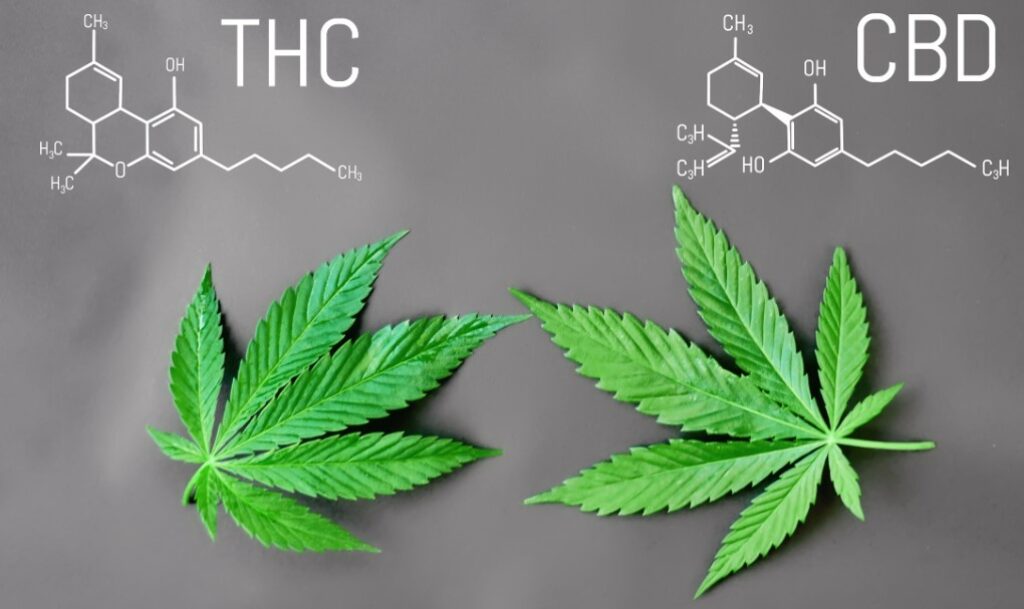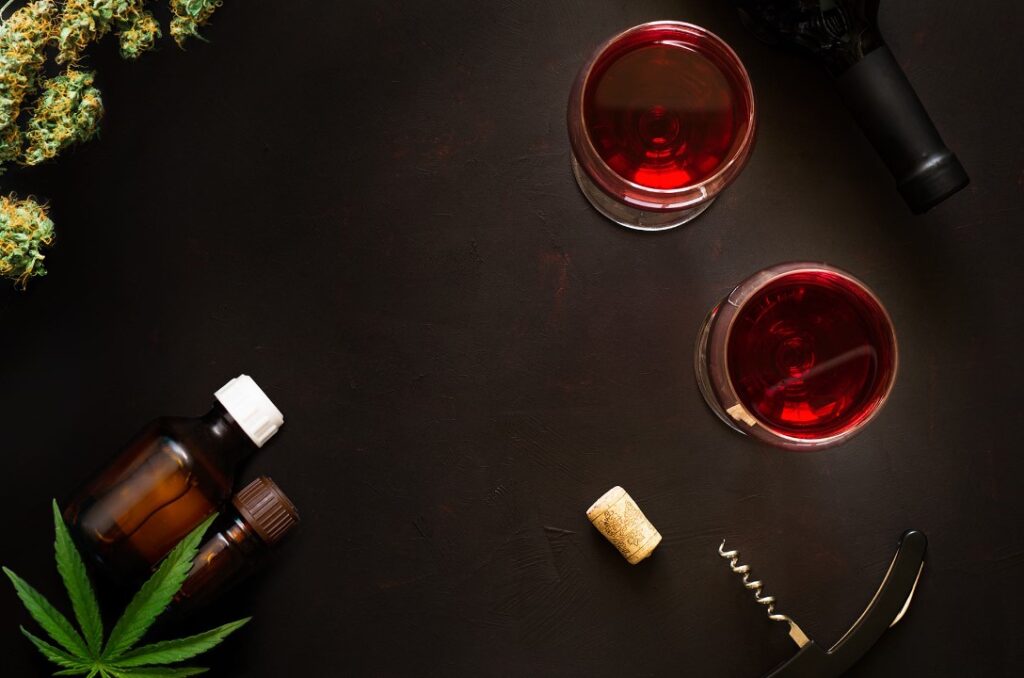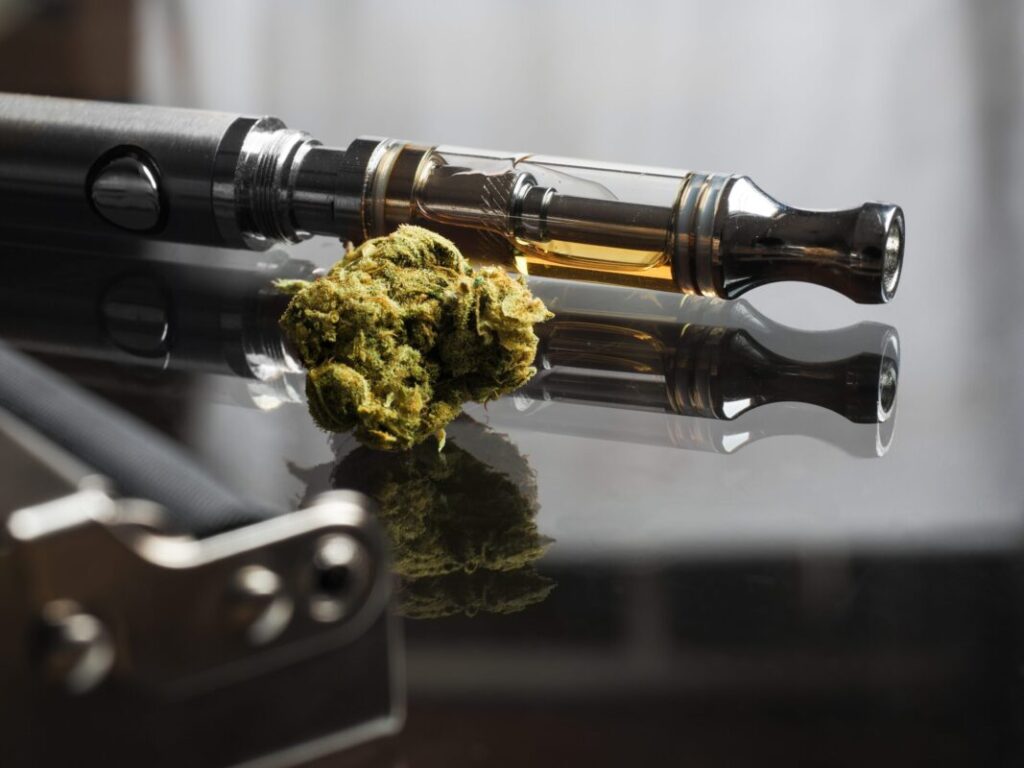
Recent research funded by the government suggests that people with anxiety sleep better when they use marijuana (or weed pen) instead of alcohol or nothing at all. There’s a study involving researchers from the University of Colorado, Colorado State University, and the University of Haifa who looked into the sleep experiences of cannabis users treating their anxiety.
Read on to learn more.
Table of Contents
Key Points
- A recent survey found that people who have trouble sleeping prefer marijuana to other sleep aids.
- Anxiety patients reported experiencing improved sleep when using cannabis either alone or in combination with alcohol, in comparison to when using alcohol alone.
- The frequency of marijuana and alcohol consumption showed a correlation with enhanced sleep quality, especially on days when only cannabis was used.
Marijuana Treats Anxiety-Related Sleep Problems
Marijuana has been popularly utilized for centuries for its medicinal properties. Recent progress in research has shed light on the potential therapeutic effects of marijuana, particularly its cannabinoids, on various health conditions, including anxiety and sleep disorders. Marijuana can be consumed orally, in edibles, or in a weed pen.
Cannabidiol (CBD) and Tetrahydrocannabinol (THC)

Source: genengnews.com
CBD and THC are two primary cannabinoids found in marijuana, each exerting distinct effects on the body’s endocannabinoid system. CBD is non-psychoactive and is known for its anxiolytic (anxiety-reducing) and soothing properties.
On the other hand, THC is psychoactive and is responsible for the “high” associated with marijuana use. While THC can induce relaxation and drowsiness, it may also worsen anxiety in some individuals, particularly at higher doses.
Related Studies
In a related outcome, a recent survey among cannabis users experiencing sleep problems revealed a preference for marijuana over other sleep aids, resulting in improved outcomes the following morning and fewer side effects. Among the preferred methods were smoking joints or using vaping products containing THC, CBD, and the terpene myrcene.
The topic of sleep quality emerges in studies exploring the potential benefits of marijuana, with users commonly reporting enhanced rest. Recent research, including studies involving individuals with chronic health conditions and those diagnosed with neurological disorders, has consistently shown improvements in sleep quality with cannabis use.
Research Findings

Source: ashleytreatment.org
The study posted in Drug and Alcohol Review investigated the impact of marijuana, alcohol, or both on sleep by analyzing daily surveys completed over 30 days by participants, detailing substance use and sleep patterns.
- Participants reported better sleep after using cannabis alone or with alcohol compared to alcohol alone.
- Frequency of marijuana and alcohol use correlated with better sleep quality, particularly on cannabis-only days.
Using real-life data from people with anxiety symptoms backed up previous experiments showing that cannabis usually improves how people feel about their sleep, even if they don’t have sleep or anxiety problems. Using alcohol and cannabis more often might also affect how cannabis impacts sleep each day, possibly through pharmacokinetics and cross-sensitization.
More Results
- Both cannabis-use-only days and co-use days were associated with higher perceived sleep quality compared to non-use days.
- Sleep quality significantly improved after cannabis-only days compared to co-use days, further supporting the growing evidence of cannabis’s sleep-enhancing properties.
Cannabis vs. Alcohol

Source: paidposts.5280.com
While alcohol has been found to aid in falling asleep, the study reinforced previous findings that it doesn’t improve overall sleep quality as effectively as cannabis. Interestingly, the sleep benefits of cannabis alone didn’t diminish over time for individuals who reported frequent use of marijuana and alcohol. So, tolerance didn’t impact sleep quality.
The results revealed a contrary trend: better sleep quality on days following cannabis use (compared to non-use days) among frequent cannabis users. The researchers highlighted the importance of doing experiments to see how cannabis and alcohol affect sleep.
However, the information on how different types of cannabis affect sleep is insufficient, so more research is needed.
Weed Pen
Weed pens or cannabis vape pens are portable devices designed for vaporizing cannabis concentrates. They provide a discreet and convenient way to consume cannabis. These pens are tailored to different preferences and effects, including indica and sativa, and hybrid varieties.
- Indica cannabis pens are relaxing and sedating, perfect for evening or unwinding after a long day.
- Sativa cannabis pens are prized for their energizing and uplifting properties. They’re often favoured for daytime use to enhance focus and creativity.
- Hybrid cannabis pens combine elements of both indica and sativa strains. They offer a balanced experience that may differ based on the blend of strains.
| Product | Type | THC Content | Features |
| OneStop – THC Distillate Disposable Vape | Indica | 93% – 95% |
|
| OneStop – THC Distillate Disposable Vape | Sativa | 93% – 95% |
|
| OneStop – THC Distillate Disposable Vape – Hybrid | Hybrid | 93% – 95% |
|
How Cannabinoids Affect Sleep Patterns
Research suggests that cannabinoids, particularly THC and CBD, may influence various stages of sleep, including sleep onset, duration, and continuity.
| Sleep Stage | Normal Patterns | Cannabinoid Effects |
| Sleep Onset | Rapid onset within minutes | Shortened sleep latency, facilitating a quicker transition to sleep |
| REM (Rapid Eye Movement) Sleep | Increases throughout the night, especially in later sleep cycles. | Possible suppression or alteration in REM sleep duration |
| NREM (Non-Rapid Eye Movement) Sleep | Dominates earlier sleep cycles, characterized by deep restorative sleep. | May enhance NREM sleep duration and continuity. |
| Total Sleep Time | 7-9 hours for adults | May lead to changes in total sleep time, potentially prolonging sleep duration or causing disruptions. |
Notes:
- People react differently to cannabinoids due to factors like how much they take, how they take it, and their tolerance level.
- Cannabinoids can help some people fall asleep and improve certain parts of sleep, but they can also cause problems like feeling groggy or having trouble thinking the next day.
- Using cannabinoids for sleep over a long time might lead to dependence or needing more to get the same effect.
Say ‘No More’ to Counting Sheep
Anxiety often makes it hard to sleep, and poor sleep can make anxiety worse. Marijuana might help with anxiety-related sleep problems. However, it’s still not completely sure how these substances do this. More research is needed to figure out the exact ways cannabinoids affect sleep. While it might help some people sleep better, others might become dependent if they use it for a long time.
If you’re ready to explore a natural path toward better sleep and less anxiety, GrassLife can help you find the right product to fit your needs. Start the journey to more restful nights and calmer days.
Frequently Asked Questions

Source: drugfree.org
Are there alternative methods for anxiety patients to improve sleep without marijuana?
1. Cognitive-behavioural Therapy (CBT)
CBT is a proven method for anxiety and sleep issues. It helps by changing negative thoughts and behaviors that disrupt sleep. Techniques like restructuring thoughts and learning sleep habits can lead to better sleep.
2. Relaxation Techniques
Deep breathing, meditation, and muscle relaxation can calm the mind and body before bed. These practices reduce stress and make it easier to fall asleep and stay asleep.
3. Consistent Sleep Schedule
Keeping a regular sleep routine helps regulate the body’s internal clock. This improves sleep quality and reduces insomnia.
4. Avoiding Stimulants
Cut back on caffeine, especially in the afternoon and evening. Caffeine can disrupt sleep by keeping you alert. Opt for caffeine-free drinks or herbal teas to promote relaxation and better sleep.
How does marijuana compare to traditional sleep medications for anxiety patients?
Firstly, marijuana’s THC and CBD interact with the body’s system, which causes relaxation and possibly better sleep. However, its effectiveness varies among users due to dosage and strain. Some see it as a more natural option than traditional medications, which can carry risks of dependency and side effects.
On the other hand, traditional anxiety sleep medications like benzodiazepines and antidepressants have been rigorously studied and regulated. They target specific brain chemicals to induce relaxation and sleep. These medications come in consistent doses and forms, which makes their effects more predictable. But they also have risks of tolerance, dependency, and withdrawal, needing careful monitoring by doctors.
How can I ensure I’m using a weed pen safely?

Source: thelodgecannabis.com
- Start small ─ Begin with a little amount and wait to see how you feel.
- Read up ─ Learn how your cannabis pen works by reading the instructions.
- Learn the effects ─ Understand how it makes you feel, especially the differences between THC (makes you high) and CBD (doesn’t make you high).
- Keep track ─ Pay attention to how much and how often you use it.
- Drink water ─ It can make your mouth dry, so stay hydrated.
- Listen to your body ─ If something feels off, take a break and consider talking to a doctor.
- Don’t use and drive ─ It can mess with your driving.
- Be mindful of where you use it ─ Pick a safe and private spot.
- Clean it regularly ─ Follow the cleaning instructions to keep it working right.
- Talk to a doctor ─ If you’re using it for health reasons like anxiety or trouble sleeping, get advice from a healthcare provider.







